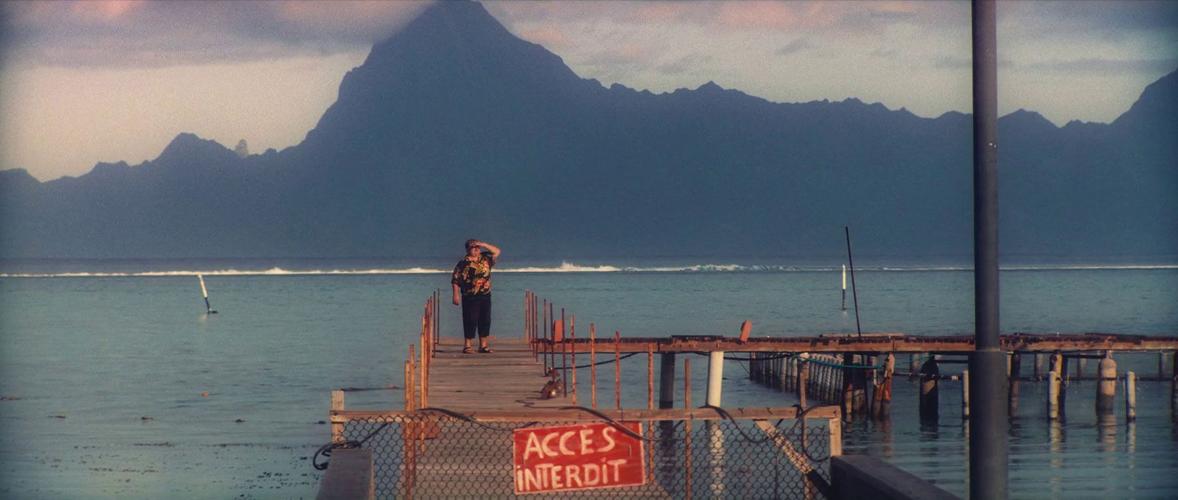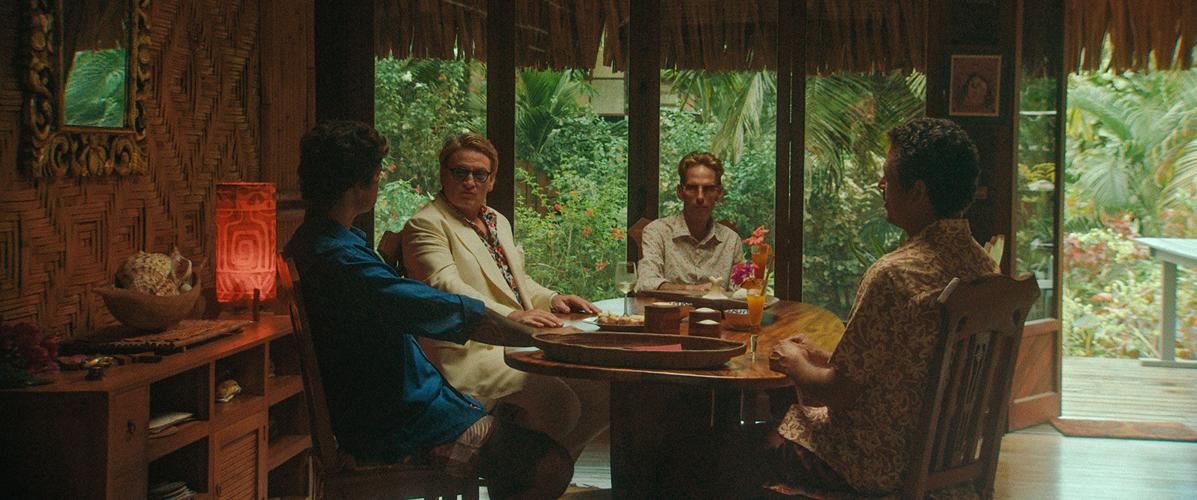In another universe, the story of Pacifiction could have been a John le Carré novel — a tale of turnabout betrayal in tropical climes where men must navigate tricky political situations and a false step means death. Similarly it could have been a Laura Gemser Emanuelle film about pleasure and power exerting themselves on the nonwhite population of the non-Western world. But thankfully, Pacifiction is, in the here and now, an Albert Serra film. It’s a heightened but narcotized reality; everything moving through the haze of heat and the scents of lush growth and many kinds of sweat.
Serra is the Catalan filmmaker responsible for some of the most exceptional films of the past two decades — pitiless real-time explorations of the human experience like Liberté and The Death of Louis XIV, theoretical exercises like the Dracula-versus-Casanova whatsit Story of My Death, and the most beautiful dramatization of the story of the Magi ever put on film (2008’s Birdsong) — and his take on this material is as fresh and provocative as one might hope. Provided, that is, that what you want is something unusual. “Like Claire Denis’ tragically underrated Stars at Noon?” you ask. No. Much, much weirder.
Given Serra’s history of masterpieces, each playing very stratified and kinky games with narrative formalism and emotional tone, you might find yourself thinking that the writer-director has accomplished his most prankish achievement yet by making global art cinema feel empathy for middle management set adrift. The film’s manager, or more specifically “High Commissioner of the Republic,” is De Roller (Benoît Magimel), a man defined by a life in suits and sunglasses, a colonial signifier for a history of plunder and assault — quite literally. It’s no fiction that France used Tahiti and its surrounding islands as the site of nuclear tests for 30 years, only stopping officially in 1996.
De Roller is an incarnation of decadent decency — devoted to pleasure and keeping things running as smoothly as possible, keeping the many factions of people intersecting in Tahiti occupied and satisfied. In an American film, he’d be an aspirational figure, someone climbing his way to power and fortune by staying a step ahead of everyone around him, playing all his enemies against one another, concerning themselves with tiny pieces of tiny pies. But this is not an American film, and Magimel’s César-winning performance is a marvel.
He’s a cipher who uses breakfast as a weapon, a juggler who is very good at his job but who has also been at it just a little too long. He’s both voyeur and participant, and a bon vivant whose taste for pleasure has somehow knitted itself into a concern for the land and its people. He’s no savior, but neither is he a pirate. Sliding through life on charm has treated him well, and this stirring of empathy has roiled his insides like the staggering waves we see during an exquisite jet ski sequence. Magimel saunters, lounges and floats through the film in a way that recalls both Rainer Werner Fassbinder in Beware of a Holy Whore and the doomed Gerrys in Gus Van Sant’s Gerry.

Pacifiction
Magimel is matched by Pahoa Mahagafanau as Shannah, De Roller’s major domo, assistant, source of information and occasional lover. Both Shannah and Mahagafanau are rae-rae (Polynesian trans women), and it is through their eyes that we begin to see things from a perspective distinct from the would-be power brokers, military tools and doddering signifiers who seem to be the prime movers around the island nation.
What Pacifiction does that is both admirable and astonishing is sustain a hypnotic — and just shy of hallucinatory — atmosphere for almost three hours. It can feel like those transcendent moments in a Michael Mann film when plot and form coalesce into a collective fugue state, and you start to process what you’re viewing more as actual experience than narrative dramatization. You feel this movie in the part of the brain that handles pleasure and unease. The soothing electronic drones of Marc Verdaguer’s score are exquisite, tapping into an uncanny space between a spa day and the chillout drain room at Berghain, and it is matched by Artur Tort’s simply staggering digital cinematography. If you’re rightfully dazzled by Dan Laustsen’s lighting in John Wick 4 (and you should be, at times it looks like Hou Hsiao-Hsien’s Flowers of Shanghai), Pacifiction is going to overwhelm your eyes in the most glorious fashion.
As an old-school Flashdance head, I have a hard time not rooting for a bar or club that invests in intricate production numbers with costumes and dancers and a sense of artistic ritual, even if its central metaphor is cockfighting (thankfully simulated). But it’s this performance that crystallizes what’s happening here — Pacifiction is a film that delights in shifting perspectives, going from macro to micro and back again with a louche ease that conveys a significant percentage of its information through vibes rather than dialogue. Most films treat the viewer as a spectator or a victim, but this one holds the viewer as a not-quite-trustworthy lover.







